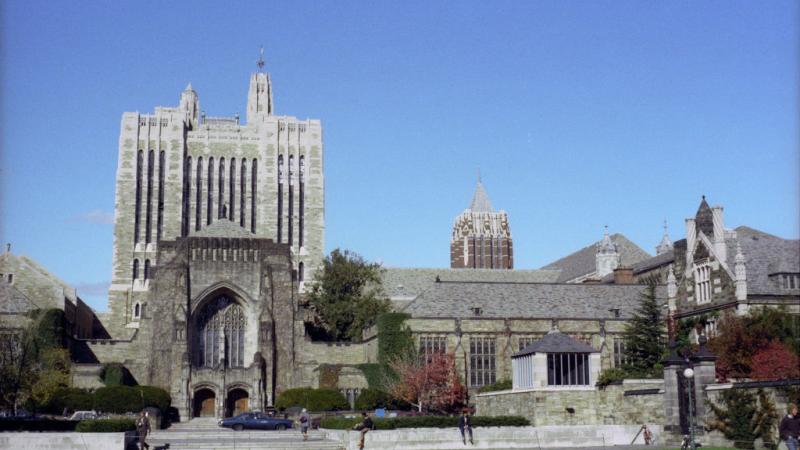Genealogy expert helps African-Americans trace slave ancestors in database of 8 billion records
'The Kunta Kinte story is an anomaly,' says Thom Reed. 'It is going to be few and almost non-existent African-Americans that are going to be able to trace their family across the Atlantic Ocean, back to where they came from over on the continent of Africa.'
As a vigorous debate around slave reparations reverberates across the country, the world's largest genealogical database allows African-Americans to trace their family roots and discover whether their ancestors were enslaved.
Thom Reed is deputy chief genealogical officer of FamilySearch, which operates familysearch.org, a free website open to the general public that includes nearly 8 billion genealogical records. FamilySearch is funded by The Church of Jesus Christ of Latter-day Saints, previously commonly known as the Mormon Church.
"We always say, start with yourself, start interviewing your family members, look for those artifacts or documents that may be in somebody's basement and a trunk, old obituaries from way back when, or funeral programs or what have you," Reed said in a video interview with Just the News. "You'd be amazed at the treasure trove of stuff that you may already have access to that will help you with your journey to discover your own roots."
After creating an online profile with a site like familysearch.org or ancestry.com, Reed explained, researchers can then query record collections to see if birth, marriage or death records from census data and elsewhere serve as a lodestar.
While tracing slave ancestors within the United States is relatively easy, Reed said it is far more difficult to trace family records past "the water's edge" from America back to Africa.
"If your family was enslaved, you're able to trace the slaveholder and, understanding what records they may have — because they kept good records of their property because they were taxed for it and things like that — that might get you to the water's edge," Reed said. "But really, the advent of DNA and genetic genealogy are what are going to allow you to really cross the pond and understand, from an ethnicity standpoint, maybe where your people came from, from the continent of Africa, prior to coming to the United States."
Tracing genealogical records directly to specific locations in Africa is difficult due to poor record-keeping of names, Reed said, explaining that slaves kept as cargo on boats were typically referred to by numbers.
"The Kunta Kinte story is an anomaly, if you're familiar with [the Alex Haley book and later TV miniseries] ‘Roots,'" Reed said. "It is going to be few and almost non-existent African-Americans that are going to be able to trace their family across the Atlantic Ocean, back to where they came from over on the continent of Africa."
Beyond basic vital census data, Reed also recommended searching land and probate records, along with military records.
"I love the U.S. colored troop pension files," said Reed, who is an African-American. "Those are particularly helpful in understanding — especially when you get back to that period of after the Civil War — of those African-Americans who fought in the Civil War being able to collect pension after the war."
Reed said the Bureau of Refugees, Freedmen, and Abandoned Lands, established by an act of Congress, was established in the 15 Southern states and the District of Columbia to help former slaves and poor whites recover from the impact of the Civil War. In addition to offering such services as providing food rations and helping former slaves protect themselves via labor contracts with former slaveholders, the bureau solemnized marriages between slaves who were previously not allowed to marry in the United States.
"And they documented and kept those records in real time," Reed said. "Those were preserved, and the National Archives was great enough to microfilm and then digitize those and make those available to those individuals who want to do that type of research."
Reed said he took an interest in genealogy after he took a trip to Ghana. After returning home, he decided he wanted to take a DNA test. He said those DNA results showed his family was not from Ghana, but rather mostly from Nigeria, the Congo and Cameroon.
"My ancestors are urging me on, I feel like, every day in this work," Reed said. "So that's what's really driven my passion. And I'm so pleased that FamilySearch has taken such an interest in people of African descent and working on genealogy for people of African heritage. It's been great to see the discoveries that others have made from the resources that us and other partners have brought to bear in the recent years to help people get to the water's edge and get back, hopefully, to the motherland, to their homeland."
Watch the full interview here:
















